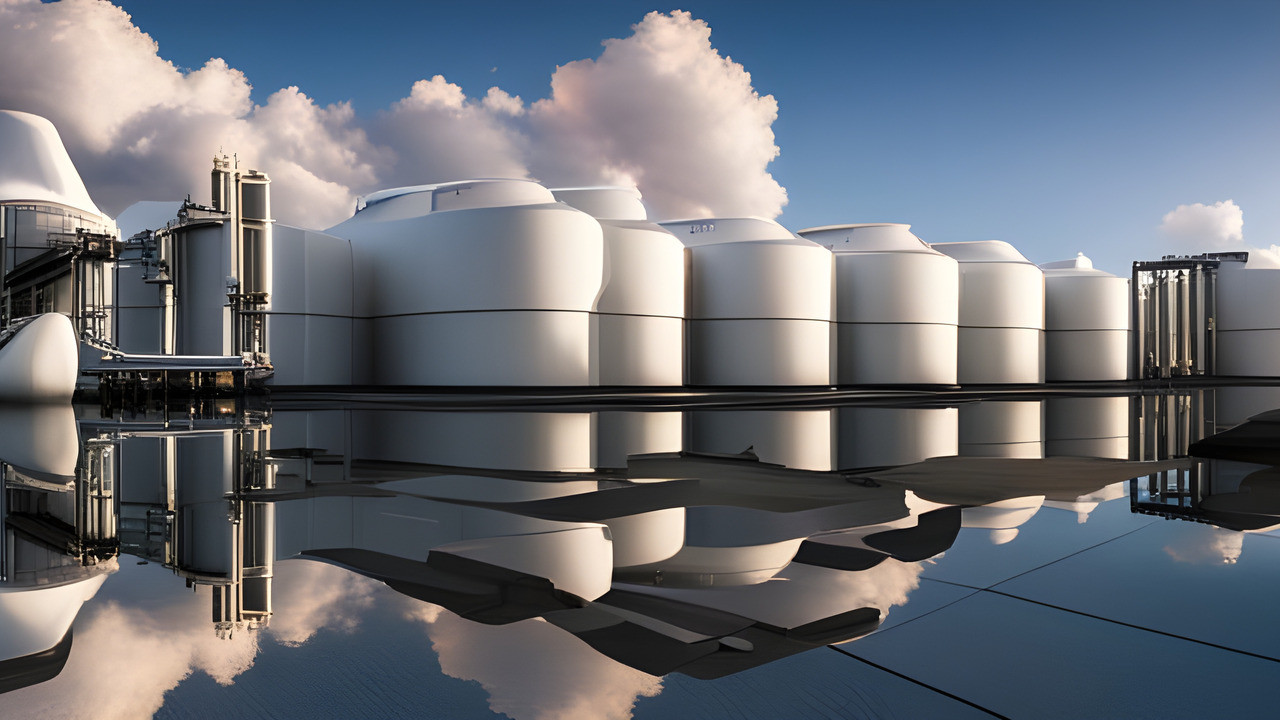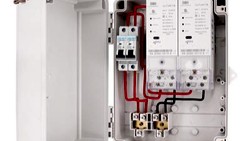With the use of renewable energy sources, the need for efficient and reliable energy storage systems has become increasingly important. One alternative solution is hydrogen energy storage, which involves converting electrical energy into hydrogen gas and storing it for later use. This article provides an overview of the technology, its advantages, and its drawbacks.
Technology
Hydrogen energy storage primarily relies on a process called electrolysis. During electrolysis, an electric current is passed through water (H2O), causing it to split into hydrogen (H) and oxygen (O) gases (2H2O ⇾ 2H2 + O2). The hydrogen gas can then be stored in tanks or underground caverns for later use. When needed, the stored hydrogen can be converted back into electricity through fuel cells or combustion in gas turbines.
There are several types of electrolysis technologies, including alkaline electrolysis, proton exchange membrane (PEM) electrolysis, and solid oxide electrolysis. Each technology has its own set of advantages and disadvantages, but all share the common goal of efficiently converting electrical energy into hydrogen gas.
Required Equipment
There are several types of equipment that may be required for storing hydrogen for use as an energy source. Some potential options include:
- Hydrogen tanks
These containers store compressed hydrogen gas at high pressure so that it can be used as fuel later on. They come in different sizes depending on their intended application, whether they need to power cars or heavy machinery. - Electrolysers
This equipment uses electricity to split water molecules and produce hydrogen via electrolysis. Depending on the scale of your operation, you could use large industrial units or smaller versions designed for home use. - Compressors
To make sure that the stored hydrogen remains pressurized and ready for use, compressors keep the gas under a specific pressure. Industrial facilities might require stationary compressors, while portable models would be more suitable for cars or small-scale operations. - Fuel cells
These devices convert hydrogen into electrical energy by oxidizing it within special membranes to produce DC current and waste water. While not essential for basic energy storage purposes, fuel cells form part of many renewable energy systems as they allow for greater flexibility in using hydrogen for power generation on demand.

Advantages of Hydrogen Storage
- High energy density
Hydrogen has a high energy density by weight, making it an attractive option for energy storage. When compared to batteries, hydrogen can store more energy in a smaller and lighter package. - Long-term storage
Unlike batteries, which can lose their charge over time, hydrogen can be stored indefinitely without significant energy loss. This makes it an ideal solution for long-term energy storage and seasonal energy balancing. - Scalability
Hydrogen energy storage systems can be scaled up or down to meet the needs of various applications, from small residential systems to large-scale grid storage. - Environmentally friendly
When hydrogen is converted back into electricity, the only by-product is water, making it a clean and environmentally friendly energy storage solution. - Grid stability
Hydrogen energy storage can help stabilize the electrical grid by providing a buffer between supply and demand, reducing the need for peaking power plants and improving the overall efficiency of the grid.
Back-draws of Hydrogen Storage
- Low Efficiency
The process of converting electrical energy into hydrogen and back into electricity is not as efficient as other energy storage technologies, such as batteries. The round-trip efficiency of hydrogen energy storage is typically around 40% to 50%, while the round-trip efficiency of battery storage can range from 70% to 90% depending on the type of battery and its operating conditions. - High capital costs
The equipment required for hydrogen energy storage, such as electrolysers and fuel cells, can be expensive, leading to higher initial capital costs compared to other energy storage solutions. - Infrastructure
The lack of existing hydrogen infrastructure, such as pipelines and refuelling stations, can be a barrier to widespread adoption of hydrogen energy storage. - Safety concerns
Hydrogen is a highly flammable gas, and its storage and transportation require strict safety measures to prevent accidents. - Energy density by volume
Although hydrogen has a high energy density by weight, its energy density by volume is relatively low. This means that large storage tanks or high-pressure systems are required to store hydrogen in a compact form.
Takeaway
Hydrogen energy storage offers an alternative solution for storing renewable energy and improving grid stability. Its high energy density, long-term storage capabilities, and environmental benefits make it an attractive option for a sustainable energy future. However, challenges such as efficiency, capital costs, and infrastructure need to be addressed to fully realize its potential.
As research and development continue, both technologies, battery- and hydrogen storage, may become increasingly viable options for meeting the world's energy storage needs.
We hope you've got some valuable insights about hydrogen energy storage. While this technology offers an alternative solution for renewable energy storage, our company is focused on electrical energy storage with batteries. Our experienced engineering team is dedicated to providing reliable and efficient energy storage solutions that meet the needs of our customers. If you have any questions or would like to learn more about our battery storage solutions, please don't hesitate to contact us. We look forward to working with you.
Editor's note: This article was originally published in June 2023 and has been updated for comprehensiveness.





All comments are moderated before being published. Inappropriate or off-topic comments may not be approved.